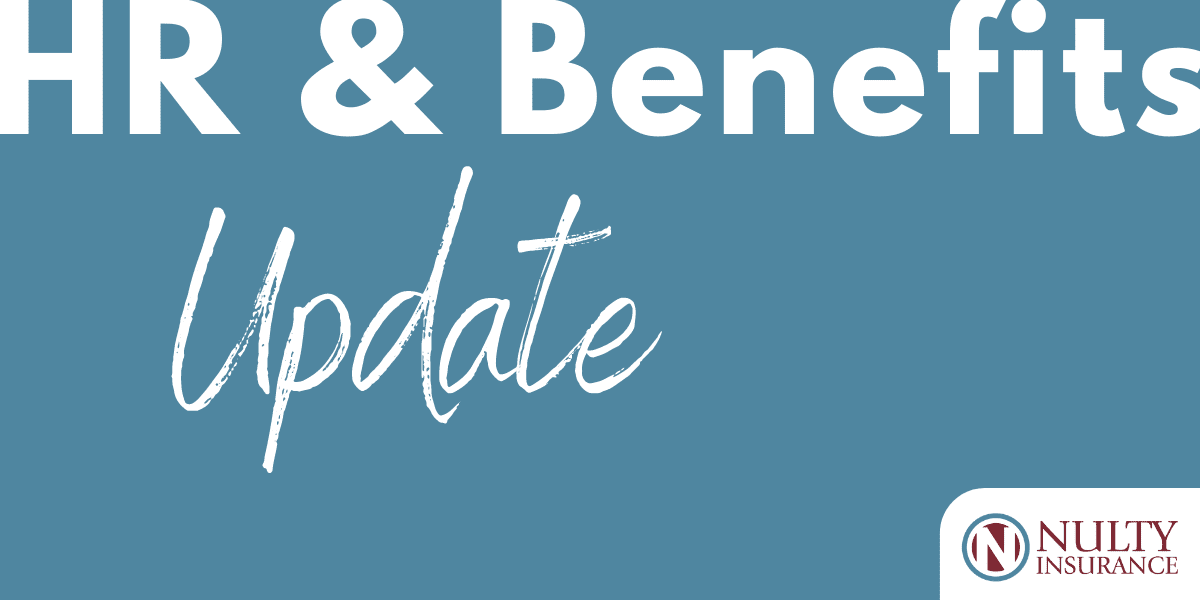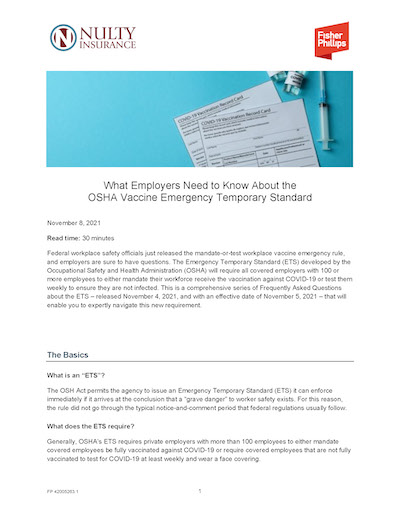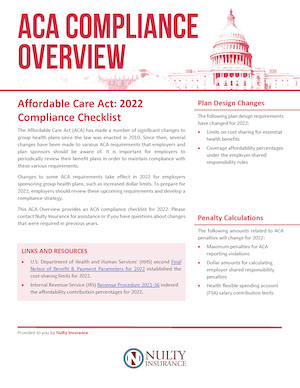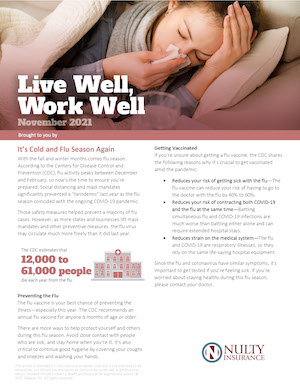
🗓️ November 2021 Updates
Keeping HR leaders up to date with important compliance updates and human resource articles.
What Employers Need to Know About the OSHA Vaccine Emergency Temporary Standard
As predicted, the Emergency Temporary Standard (ETS) that OSHA published last Friday was immediately challenged, and just one day after the publication, a federal appeals court suspended its implementation. The appeals court granted the emergency stay stopping enforcement of the new policy saying, “grave statutory and constitutional issues” and added that it was suspended “pending further action by the court.”
The 5th Circuit ordered the Biden administration to file initial legal papers by late Monday afternoon and is expected to move quickly on the rule whether the new policy can be enforced.
Covered employers should still prepare for the upcoming deadlines while litigation is pending.
This article is a lengthy one but is thorough and should help you navigate this new requirement.
Additionally, the OSHA FAQs on the ETS is a good resource.
As this topic continues to develop, we will be on top of it so stay tuned and reach out to us should you have any questions!
FAQ’s Address COVID-19 Vaccine Coverage and Premium Discounts
The DOL, HHS and the Treasury issued FAQs addressing rules regarding premium incentives for COVID-19 vaccines and rapid coverage of preventative services for COVID-19.
Premium Discounts for COVID-19 Vaccines: The FAQs clarify that a group health plan (or health insurance issuer offering coverage in connection with a group health plan) may offer participants a premium discount for receiving a COVID-19 vaccine. However, plans generally may not condition eligibility for benefits or coverage on vaccination status, and any discount must comply with final wellness program rules. Under these rules, a premium discount that requires an individual to obtain a COVID-19 vaccine would be considered an activity-only wellness program, which is a type of health-contingent wellness program. These programs must comply with the rules’ five nondiscrimination criteria, including an incentive limit and requirement to offer an alternative standard in some cases. The maximum permissible reward (or penalty) under a health-contingent wellness program that is part of a group health plan (and is not related to tobacco use) is 30% of the cost of coverage.
Preventative Services Coverage for COVID-19: Effective January 5, 2021, plans and issuers must cover, without cost-sharing, any COVID-19 vaccines and their administration immediately once the particular vaccine becomes authorized under an emergency use authorization (EUA) or approved under a biologics license application. This coverage must be provided consistent with the scope of the EUA or BLA, including any amendment, to allow for an additional dose to certain individuals, booster doses or the expansion of the age or whom the vaccine is authorized or approved.
HIPAA Privacy Rule and COVID-19 Vaccine Inquiries
Recently, HHS issued FAQs on the application of the HIPAA Privacy Rule on COVID-19 vaccination and the workplace. The HIPAA Privacy Rule does not prohibit any person – including HIPAA-covered entities and business associates – from asking whether an individual has received a COVID-19 vaccine. Rather, the Privacy Rule regulates how and when a covered entity or its business associate may use or disclose protected health information (PHI), including an individual’s vaccination status. The Privacy Rule does not prevent any individual from disclosing whether he or she has been vaccinated against COVID-19 or any other disease. The Rule does not apply to individuals’ disclosures about their own health information.
Additionally, the Rule does not prohibit an employer from requiring an employee to disclose whether they have received a COVID-19 vaccine. The Privacy Rule does not apply to employment records and does not regulate what information can be requested from employees. However, documentation or other confirmation of vaccination must be kept confidential and stored separately from the employee’s personnel files under Title I of the ADA.
IRS Clarifies Key Time Extensions of COBRA Election and Payment Deadlines
In mid-October, the IRS issued 2021-58, which provides guidance, including ten helpful examples, on the duration of certain COBRA deadlines due to the COVID-19 pandemic. Specifically, Notice 2021-58 addresses: 1) the extension of deadlines for COBRA elections and premium payments, and 2) the interaction of the extended deadlines with the COBRA subsidy available under the American Rescue Plan Act. Part VI of the Notice includes ten examples illustrating how COBRA elections and premium payments are treated under the new guidance. Some of these examples include – COBRA election within the initial 60-day deadline, COBRA election after the initial 60-day deadline and Transition relief. Employers that sponsor group health plans should continue to work closely with their third-party COBRA administrators to ensure compliance with the federal guidance.
Affordable Care Act: 2022 Compliance Checklist
Changes to some ACA requirements take effect in 2022 for employers sponsoring group health plans, such as increased dollar limits. To prepare for 2022, employers should review these upcoming requirements and develop a compliance strategy. Although lengthy, this ACA Overview & Checklist is an excellent resource to ensure you are in compliance. Please contact your Nulty agent for assistance if you have questions about the changes.




